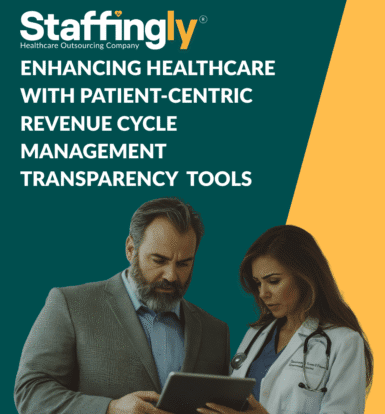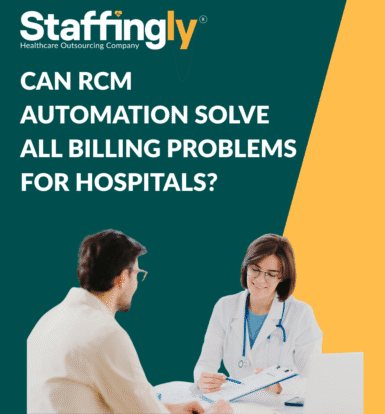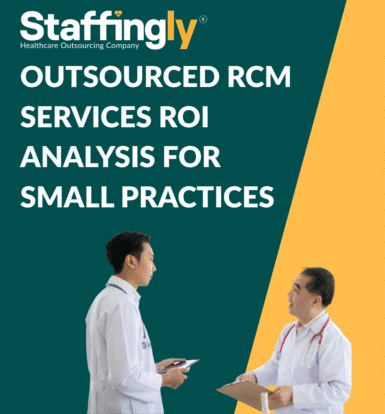On-Demand Outsourcing BPO Services for Healthcare Providers With 24/7 Coverage!
Save up to 70% on staffing costs!
Browse Specialty Staffing Services
The Financial Impact of Coding Errors in Hospital Revenue
In the complex landscape of healthcare finance, accurate medical coding plays a pivotal role in ensuring proper reimbursement for services rendered. Hospitals depend on coders to translate clinical documentation into standardized codes that determine billing, statistical tracking, and care evaluation. However, even minor coding errors can lead to substantial financial consequences. From revenue leakage to regulatory penalties, the implications of inaccurate coding extend beyond lost dollars they affect operational efficiency, compliance, and patient trust. Understanding Medical Coding in Hospitals Medical

Enhancing Medical Coding and Billing Accuracy in Revenue Cycle Management (RCM)
Accurate medical coding and billing are the backbone of a financially healthy healthcare organization. Errors at any stage in the coding or billing process can result in denied claims, revenue leakage, compliance risks, and patient dissatisfaction. With the growing complexity of payer requirements and regulatory compliance, healthcare providers are increasingly turning to advanced solutions to optimize their Revenue Cycle Management (RCM) through improved accuracy in coding and billing. The Importance of Accuracy in RCM Medical coding and billing translate patient

The Cost Benefits of RCM Outsourcing for Small Healthcare Practices
Managing revenue cycle operations effectively is a critical component of success for any healthcare practice—but for small practices, in particular, it can be a major challenge. Limited staff, increasing administrative burdens, and ever-changing payer rules often strain internal resources. That’s where outsourcing revenue cycle management (RCM) can provide both financial relief and operational efficiency. This article explores how outsourcing RCM can deliver significant cost benefits to small healthcare practices without compromising patient care or revenue integrity. What Is RCM Outsourcing?

Enhancing Healthcare with Patient-Centric Revenue Cycle Management Transparency Tools
In an era where patients are increasingly assuming the role of healthcare consumers, the demand for transparent, accessible, and simplified financial interactions has never been higher. Patient-centric revenue cycle management (RCM) transparency tools are emerging as essential solutions that bridge the gap between complex billing systems and patient empowerment. These tools are revolutionizing how healthcare providers communicate financial responsibilities, increasing trust and satisfaction while improving financial outcomes. What Is Patient-Centric Revenue Cycle Management? Patient-centric RCM shifts the focus from provider-oriented

Is AI in Revenue Cycle Management Too Complex for Small Practices?
In the rapidly evolving landscape of healthcare, artificial intelligence (AI) is reshaping how revenue cycle management (RCM) is conducted. From automating claim scrubbing to predicting denial risks, AI offers advanced tools to optimize billing and collections. But for small medical practices, where resources are limited and workflows are often manual, a common question arises: Is AI in RCM too complex to implement? The answer lies in understanding both the capabilities of AI and the specific needs of small practices. The

Can RCM Automation Solve All Billing Problems for Hospitals?
In an era defined by technological transformation, Revenue Cycle Management (RCM) automation has emerged as a promising solution to the financial challenges hospitals face. By leveraging artificial intelligence, robotic process automation (RPA), and machine learning, RCM automation seeks to streamline billing processes, reduce administrative overhead, and improve cash flow. But can it truly solve all billing problems for hospitals? The answer is more nuanced than a simple yes or no. Understanding RCM Automation RCM automation refers to the use of

Outsourced RCM Services ROI Analysis For Small Practices
Small and independent medical practices are under increasing financial pressure. Administrative burdens, rising costs, and shrinking reimbursements make managing revenue cycle operations more complex than ever. In this context, many small practices are considering outsourcing Revenue Cycle Management (RCM) — but is the return on investment (ROI) worth it? This article explores the financial and operational impact of outsourced RCM services for small practices in 2025, helping providers make informed decisions. Understanding the RCM Challenge for Small Practices Smaller practices

Rcm Denied Claim Management Strategies 2025
In the ever-evolving landscape of healthcare revenue cycle management (RCM), denied claims remain one of the most persistent challenges. As we enter 2025, the complexity of payer rules, the rise of value-based care, and evolving regulations have heightened the need for strategic, proactive approaches to claim denial management. This article explores the top strategies organizations can implement in 2025 to reduce denials, optimize reimbursements, and protect cash flow. 1. Data-Driven Denial Prevention Predictive Analytics and AI In 2025, AI and
 Book a Demo to Build Your Team Today!
Book a Demo to Build Your Team Today!


 Read Case Studies
Read Case Studies 



 Virtual Medical Assistants
Virtual Medical Assistants



